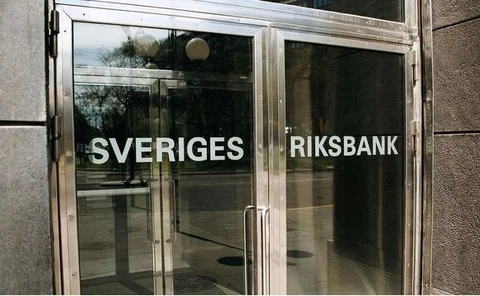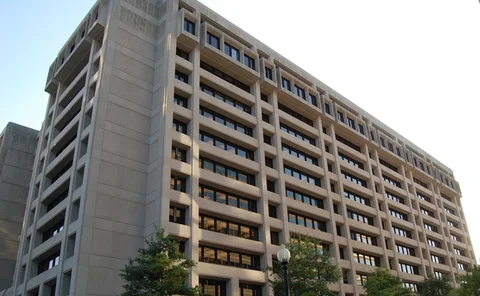Financial crisis
King says further easing unlikely to work
Former Bank of England governor warns monetary policy is reaching the limit of its ability to stimulate, with the global economy trapped in ‘quite serious disequilibria’
Bundesbank paper: German banks use specific loan loss provisions counter-cyclically
Banks increase level of loan loss provisions during upswings and decrease them during downturns, authors find; contrasts with results from other countries
BoJ paper outlines enhancements to flow of funds data
Review paper details improvements to flow of funds accounts statistics in Japan introduced since the global financial crisis, and identifies a number of trends that have emerged
BoE wartime minutes show sharp contrast between Court of then and now
Minutes from 1914-1946 show an evolving Court of Directors, but one radically different from today; the latest release covers both World Wars and the Great Depression
BoE’s crisis Court minutes reveal fractious relationships inside and out
Minutes of 2007-2009 meetings reveal efforts by Bank of England executives to circumvent the Court, as well as ‘strained’ relationship with other regulators
Pent-up wage cuts an 'important force' during recovery, San Francisco Fed researchers find
Many firms were unable to reduce wages during the recession, and the 'pent-up' reductions have influenced the recovery, argue authors
Bundesbank paper finds bank levy is biting
Big banks have adjusted their behaviour in response to a tax on their liabilities, but less revenue has been raised than expected, Bundesbank researchers find
BIS paper finds transmission of low policy rates to lending rates has weakened
There has been a ‘strong increase’ in the gap between the lending rate and the policy rate since the global financial crisis, a BIS working paper suggests
Global housing trends can predict domestic financial stability – Norges Bank paper
Crisis probability increases markedly when ‘bubble-like behaviour' in the housing and credit markets coincides with high leverage, research shows
CGFS pushes central banks to prepare market-making crisis measures
BIS committee warns of ‘bifurcated’ liquidity and suggests central banks prepare crisis measures to support market-making, including the potential for direct intervention in critical markets
Book notes: What Have We learned? Macroeconomic Policy After the Crisis, by George Akerlof, Olivier Blanchard, David Romer and Joseph Stiglitz
This book brings together the great and the good of the economics profession, policy-makers and academics, to assess what the dust jacket describes as the “brave new economic world"
Spain ‘decoupled’ from other eurozone economies, says Banque de France paper
Working paper warns Spanish economy’s convergence with eurozone is ‘sluggish and incomplete’, with the sharpest decoupling beginning a year before the sovereign debt crisis
BoJ paper finds US crisis policy more impactful on markets than European measures
Authors test policy responses to the global financial crisis including monetary, liquidity and financial sector policies, finding US announcements led to higher abnormal returns
Ingves: Consistent implementation needed to bring about ‘full benefits' of Basel III
Basel Committee chair says regulators and supervisors now 'accountable for the outcomes' of Basel III as reform agenda draws to a close
Lagarde rejects internal criticism of IMF austerity push
Independent Evaluation Office report out today concludes Fund's calls for fiscal consolidation in 2010-11 were ‘premature'; managing director says they were the ‘right call'
Significance of Swedish debt levels for Riksbank policy ‘exaggerated', says deputy
Per Jansson says expansive policy helped Sweden manage crisis better than many other countries; adds higher inflation is Riksbank's top priority
National Bank of Denmark narrows range of collateral it accepts
Financial market ‘normalisation' provides ‘opportunity' to omit assets made eligible after crisis to keep Danish banks from borrowing in euros
IMF warns of new asset bubbles caused by ‘expansionary policies' post-crisis
Report finds global imbalances are shrinking, and concludes this is driven by structural reduction in demand rather than ‘expenditure switching' to domestic products
Paper examines mismatch in Swedish job market
Swedish economy is adding job vacancies but increasing share of workforce have wrong skill-set, Riksbank article finds
Yellen: Unexpected $400 expense would put majority of US households in financial bind
Federal Reserve chair notes many of 25 million poorest US households have no wealth or negative net worth
Lower outside demand and structural bottlenecks explain EM slowdown, IMF paper finds
Slowdown a ‘remarkable feature for a non-crisis period' in emerging economies that was largely unanticipated by scholars and forecasters, paper notes
State-owned banks played counter-cyclical role in EMs following financial crisis
Credit growth by foreign banks lagged behind that of domestic banks in Asia, Latin America and ‘emerging Europe', IMF working paper finds
Mortgage credit subsidies 'disastrous for the poor'
Credit subsidies a ‘short-sighted palliative for addressing economic inequality', argue leading academics in Central Banking Journal article
Counter-cyclical liquidity hoarding could ‘strongly amplify' business cycles, according to ECB paper
Paper develops a ‘new balance sheet channel of shock transmission' that works through the composition of banks' asset portfolios






















